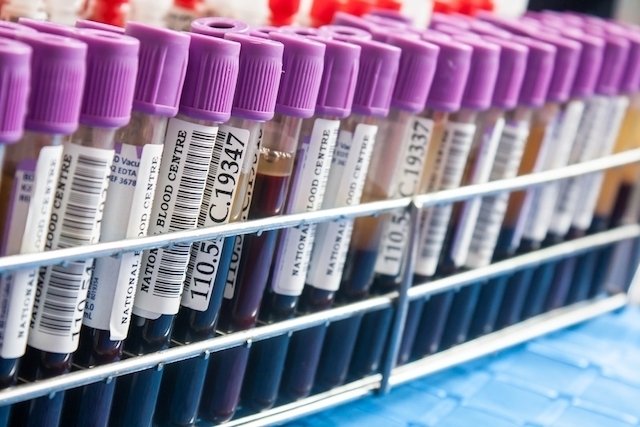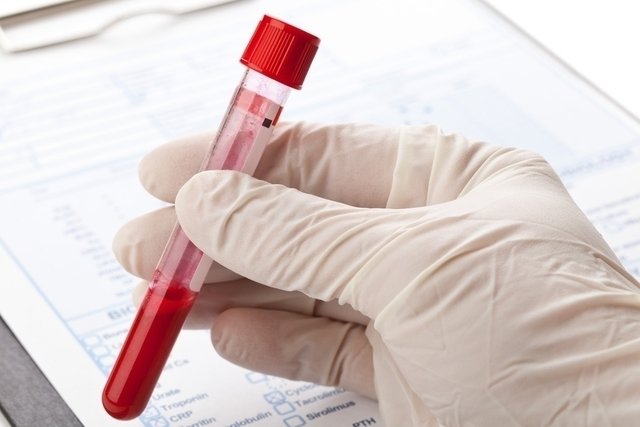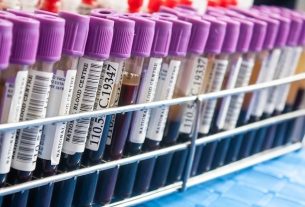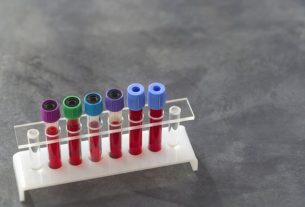FSH, known as follicle-stimulating hormone, is produced by the pituitary gland and its function is to regulate the production of sperm and the maturation of eggs during the fertile age.
Thus, FSH is a hormone linked to fertility and its concentration in the blood helps to identify whether the testicles and ovaries are functioning correctly.
The reference values for the FSH test vary according to the person’s age and gender and, in the case of women, the phase of the menstrual cycle, and can also be useful to confirm menopause.

What is the FSH test for?
The FSH test is used to:
- Investigate the causes of missed or irregular menstruation;
- Investigate the cause of early or delayed puberty;
- Assess whether the woman has already entered menopause;
- Check whether the testicles or ovaries are working properly;
- Investigate the cause of low sperm count in men;
- Check whether the woman is producing eggs adequately;
- Assess the function of the pituitary gland;
- Investigate the presence of a tumor.
Furthermore, the FSH test may be recommended by the endocrinologist or gynecologist to assess whether the couple has preserved their fertility, if they are having difficulty getting pregnant.
How is the FSH test done?
The FSH test is carried out by collecting a small blood sample, which is sent to the laboratory for analysis.
In general, it is not necessary to fast to perform this test, however some medications, such as contraceptive pills, cimetidine, clomiphene and levodopa, can interfere with the result, and it is important that the doctor is notified so that the possibility of suspending the test can be checked. medication, and it is also important to communicate to the laboratory so that these factors are taken into account.
Furthermore, some tests performed with contrast, such as thyroid imaging tests, for example, can also interfere with the test results, and it is important to communicate this to the laboratory.
FSH reference values
In general, the FSH reference values are:
- Children: up to 2.5 mIU/ml
- Adult man: 1.4 – 13.8 mIU/mL
- Adult woman in the follicular phase: 3.4 – 21.6 mIU/mL;
- Adult woman in the ovulatory phase: 5.0 – 20.8 mIU/ml;
- Adult woman in the luteal phase: 1.1 – 14.0 mIU/ml;
- Menopausal woman: 23.0 – 150.5 mIU/ml.
FSH values vary according to age and gender. In babies and children, FSH is not detectable or is detectable in small concentrations, and its production begins at puberty. Normally FSH is not requested during pregnancy, as the values are very altered during this period due to hormonal changes. Learn how to identify the phases of the menstrual cycle.
Furthermore, FSH reference values may vary according to the laboratory, and therefore, the values that each laboratory uses as a reference must be observed.
Possible changes in FSH
According to the results of the exam, the doctor will indicate what is causing the increase or decrease in this hormone, taking into account age, and whether you are a man or a woman, but the most common causes of this type of change are:
FSH alto
In women, high FSH may be related to loss of ovarian function before the age of 40, post-menopause, Klinefelter syndrome and/or use of medications with progesterone and estrogen.
In men, an increase in the FSH hormone can occur due to loss of testicular function, castration, increased testosterone, Klinefelter syndrome, use of medications with testosterone, chemotherapy, alcoholism.
low FSH
A decrease in FSH in a woman may indicate that the ovaries are not producing eggs adequately, pregnancy, anorexia nervosa, use of corticosteroids or the contraceptive pill.
Low FSH in men may be related to low sperm production, decreased pituitary or hypothalamus function, stress or low weight.

Sign up for our newsletter and stay up to date with exclusive news
that can transform your routine!
Warning: Undefined array key "title" in /home/storelat/public_html/wp-content/plugins/link-whisper-premium/templates/frontend/related-posts.php on line 12
Warning: Undefined array key "title_tag" in /home/storelat/public_html/wp-content/plugins/link-whisper-premium/templates/frontend/related-posts.php on line 13




